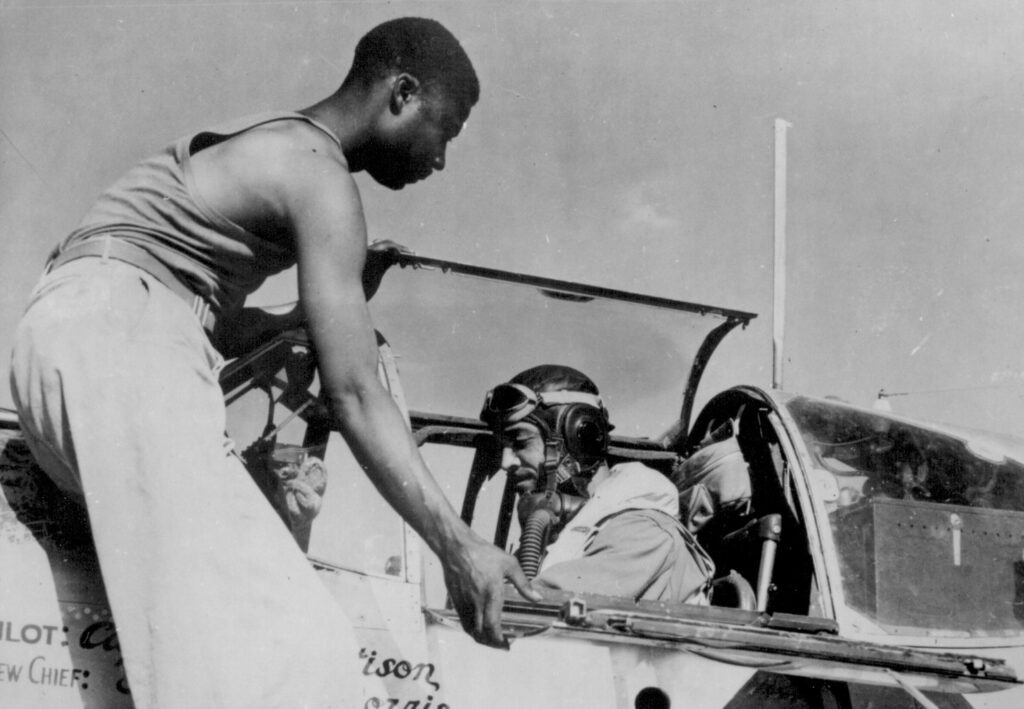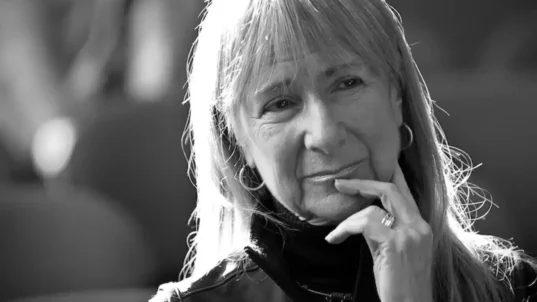
Staff Sgt. Alfred D. Norris assists Capt. William T. Mattison, public domain via wikimedia
Buck Adams (a pseudonym) was an African American soldier during World War II. As a trained mechanic, he worked closely with the WAAF (Women’s Auxiliary Air Force). He began a relationship with one of the WAAF clerks. This didn’t sit well with his NCO, a man from the deep South.
When Germany was defeated, and Buck was being discharged, his NCO would not sign off on an honorable discharge. Instead, Buck was given a blue discharge, a middle ground between an honorable and a dishonorable discharge. It was issued to those departing the armed services with “undesirable habits and traits of character.” Buck accepted the discharge because he was anxious to return to the U.S.
What Buck didn’t know was that blue discharge would come with negative consequences. He was shunned by employers when he sought a job. He was also denied benefits of the G.I. Bill by the Veterans Administration.
The blue discharge was a little-known approach for dishonoring veterans after they finished their service. It was disproportionately used to dishonor African American soldiers and those who were suspected to be homosexual. About 50,000 people were given blue discharges during World War 2, with the largest group of recipients being African Americans, and with about 9,000 men and women being targeted because of their sexuality.
The American Legion led the fight to get rid of the blue discharge. The military objected. An appeals board was created and about a third of the blue discharges were upgraded to honorable. An African American newspaper published guidance for how to appeal the blue discharge. The Pittsburgh Courier wrote about how the blue discharge was a way of “allowing prejudiced officers to use it as a means of punishing Negro soldiers who do not like specifically unbearable conditions.”
A committee of Congress took up the issue and recommended reforms and tightened the qualification process for issuing a blue discharge. Nevertheless, the Veteran’s Administration continued to discriminate. Eventually the use of blue discharges was discontinued in 1947.
Just imagine how soldiers who fought for their country must have felt when they received a blue discharge. They risked their lives for our democracy only to be dishonored by the military and the VA. The fight for democracy was won abroad, but not yet at home.
* * *
‘Should I sacrifice my life to live half American?’ ‘Will things be better for the next generation in the peace to follow?’ ‘Would it be demanding too much to demand full citizenship rights in exchange for the sacrificing of my life? Is the kind of America I know worth defending? Will America be a true and pure democracy after this war? Will Colored Americans suffer still the indignities that have been heaped upon them in the past? These and other questions need answering; I want to know, and I believe every colored American, who is thinking, wants to know. –James G. Thompson, a 26 year-old African American, in a letter to the Pittsburgh Courier
This is part of our “Just Imagine” series of occasional posts, inviting you to join us in imagining positive possibilities for a citizen-centered democracy.


